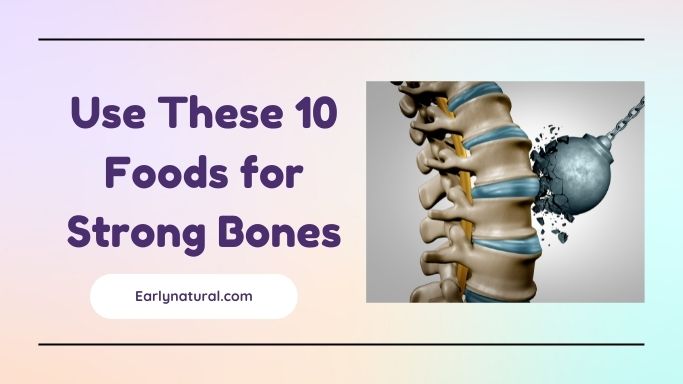
We all need strong bones because it’s like the structure of our body. Strong bones provide support to your muscle and support you in physical activities like dancing or sports. Getting enough calcium in your diet has long been thought to be essential to having strong bones, but recent research shows that’s not necessarily the case.
While calcium is still important for bone health, so are other nutrients like vitamin D and magnesium. Incorporating these 10 foods into your diet will help you get the nutrients you need to support your bones, regardless of age. You can use Foods for Strong Bones.
Foods for Strong Bones
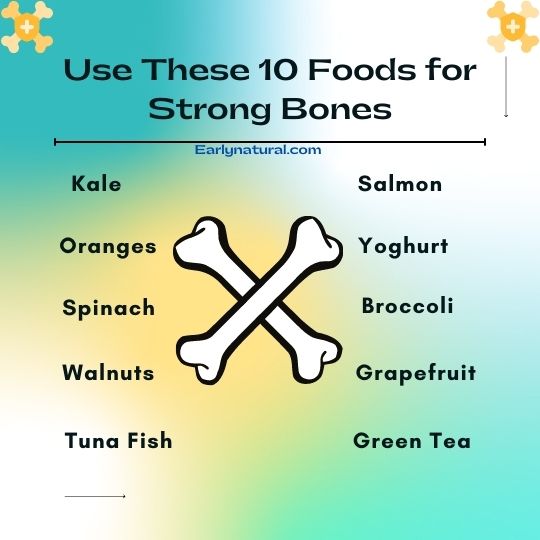
Salmon
It is filled with high-quality protein and omega-3 fatty acids, which can help strengthen bones. Omega-3s help supports bone formation and may reduce inflammation, which could prevent osteoporosis.
It is also rich in vitamin D. Vitamin D is essential for healthy bones because it’s necessary for calcium absorption, as well as other critical functions like regulating blood pressure and preventing heart disease. You should try to add it to your diet for strong bones.
Kale
Many vegetables are great sources of calcium, but kale is one of those rare ones that’s also high in vitamin K. Both minerals are crucial for bone health and when combined, they form a powerful duo.
For instance, vitamin K helps facilitate a process called osteocalcin production, which creates and maintains strong bones by regulating calcium absorption and helping it move throughout your body.
Just 1 cup of cooked kale contains roughly 40 mg of calcium—that’s about half your daily recommended intake! If you find yourself struggling to eat enough vegetables every day (as most Americans do), try adding some extra servings to a green smoothie or other wholesome drink.
Consuming food in liquid form has been shown to help with digestion, reduce calories and boost the nutritional value.
Oranges
Oranges are high in a compound called bromelain, which has been shown to break down proteins. By breaking down proteins in your body that help you form bone, oranges may be one of nature’s best sources of calcium.
Oranges also have a good amount of vitamin C, another compound that helps promote bone health by inhibiting an enzyme that breaks down collagen and promotes inflammation.
Drinking 8 ounces of orange juice every day will put you on track for strong bones. It is high in a compound called bromelain, which has been shown to break down proteins.
By breaking down proteins in your body that help you form bone, oranges may be one of nature’s best sources of calcium. You should consume it because of its overall health benefits.
Yoghurt
yoghurt is one of nature’s most perfect foods. It is packed with calcium, but a spoonful of plain yoghurt also contains probiotics or good bacteria that help fight disease.
Yoghurt can be your friend when trying to lose weight too since it digests slowly and promotes feelings of fullness – meaning you’re less likely to snack between meals.
Be wary of overly processed yoghurts and opt for plain varieties instead (goats/sheep milk yoghurts are particularly delicious).
Spinach
Spinach is a leafy green that’s rich in vitamin K, which plays an important role in bone health. According to research published in the Journal of Clinical Endocrinology and Metabolism, women who consumed more vitamin K had significantly lower levels of a hormone associated with age-related loss of bone mass.
Spinach also has more calcium than other leafy greens, so if you don’t get enough dairy products in your diet (the best source of calcium), you’ll want to consider eating spinach regularly.
It also contains antioxidants that may protect against osteoporosis and heart disease. One serving provides at least 40 percent of your daily needs for magnesium, which plays an important role in bone formation.
Green Tea
Green tea has become a hot topic in recent years, and studies have linked it to everything from preventing cancer to improving brain function.
It contains high levels of epigallocatechin gallate (EGCG), a powerful antioxidant that may fight cancer cells and reduce heart disease risk.
In addition, green tea’s caffeine content promotes a healthy metabolism, which in turn keeps your bones strong by helping you lose excess weight. Exercise is also crucial—particularly weight-bearing exercises like walking and running—to help keep your bones healthy as you age.
For example, walking just 15 minutes a day at 5 miles per hour can help improve bone density in older women who are at risk of osteoporosis.
Walnuts
Walnuts are one of my favourite snacks. In addition to being chock-full of omega-3 fatty acids, they also contain a protein called osteocalcin, which is thought to promote bone strength.
Walnuts also contain vitamin E, selenium, and potassium. They are rich in antioxidants and anti-inflammatory properties that help reduce chronic disease and increase cardiovascular health.
Opt for about 12 walnut halves per day as part of a balanced diet with plenty of fresh produce, nuts/seeds, and whole grains.
Tuna fish
Tuna fish is rich in calcium and vitamin D, two of the most important nutrients when it comes to healthy bones.
Vitamin D also helps increase bone mineral density. When buying canned tuna, look for BPA-free cans and steer clear of light or dolphin-safe options as they usually contain less tuna and more water.
Light tuna has less protein and calories than chunk light and white albacore; therefore, it’s not a good substitute if you’re looking for a balanced meal with plenty of calcium.
Grapefruit
Grapefruit is rich in vitamin C, which is good for bone health, as well as lycopene, an antioxidant that could help reduce joint pain.
Eating grapefruit may also cut cholesterol levels and lower blood pressure. Studies have linked diets high in lycopene with stronger bones and a lower risk of osteoporosis. It contains more vitamin C than oranges or lemons—one fruit provides more than 100 percent of your daily requirements.
Enjoy citrus fruits such as grapefruit with meals—and always wash them before eating! Citrus fruits can be a good source of folic acid, which aids in healthy cell production and may help prevent osteoporosis later in life by strengthening bone cells and promoting bone growth during childhood.
Broccoli
Low in calories and high in fibre, broccoli is a great choice if you’re trying to maintain a healthy weight. But you should also make sure to eat broccoli because it contains an important nutrient called Vitamin K.
This vitamin plays an essential role in bone health by helping your body absorb calcium. Research shows that those who eat higher amounts of Vitamin K have stronger bones when they reach middle age. If you don’t like raw broccoli, try making it into soup or adding it as one of many ingredients in your stir-fry.
Check Our Web Stories–

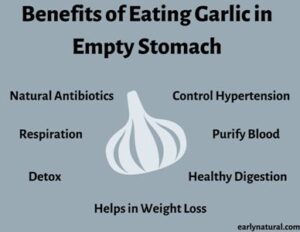
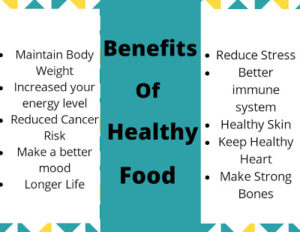
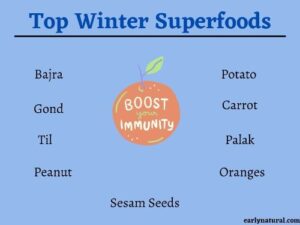
I was recommended this website by my cousin. I am not sure whether this post is written by him as nobody else know such detailed about my trouble. You are amazing! Thanks!